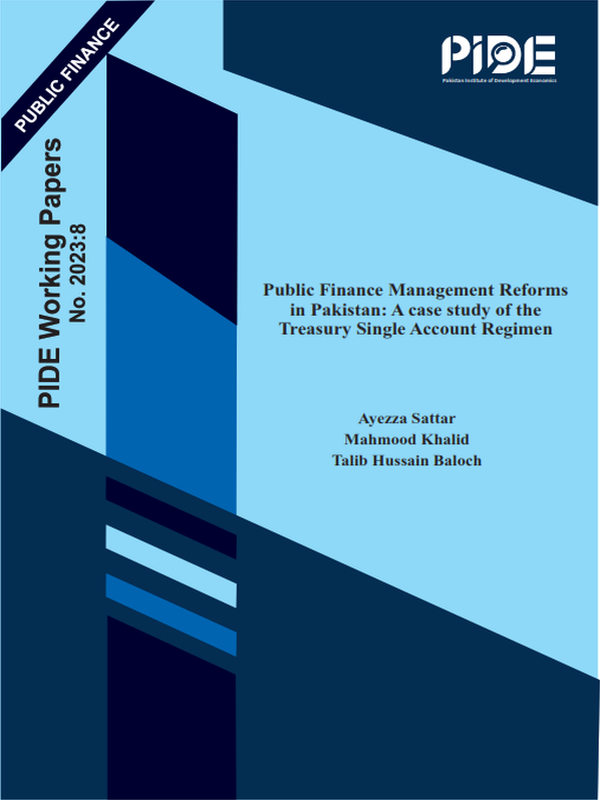Public Finance Management Reforms In Pakistan: A Case Study Of The Treasury Single Account Regimen
1. INTRODUCTION
The Public Financial Management (PFM) refers to the regime of laws, regulations, processes and institutional, organisational and management systems which are established to ensure that the public monies are raised and used in an effective and efficient manner so as to ensure achieving delivery of services in accordance with the national policies (Williams, 2010). The implementation of a sound Public financial management thus becomes a yardstick to measure how successfully the Government conducts its business.
In case of Pakistan, before the promulgation of the Public Finance Management (PFM) Act 2019-there was no policy framework in terms of cash management in the country. Hence there was an urgent need for a reform in the system so as to create a credible financial management for the government. PFM ACT 2019 encompassed the whole system of public finance management but in this paper only the concept of Cash Management would be dealt with—and the introduction of the Treasury Single Account system (TSA) has been taken as a case study for empirical research.
Public Finance Management Act of 2019 provided with a sound legal basis for carrying out the processes related to Budgeting and the way Cash is managed in Pakistan. Chapter five-of the PFM Act 2019 delineates the basic principles of sound cash management. Treasury Single Account is the first pillar of modern and prudent financial management. It envisages a system of one particular account or a set of linked account where all the governmental cash would be swiped at the end of the day (Williams, 2010). Before the notification of Cash Management and Treasury Single Account Rules 2020, the Finance Division used to provide all the line ministries with a particular budget. Finance division also issued Cash disbursement policies but what happened after the money was provided to the ministries? The same were not followed or reconciled till the end of fiscal year where all the unutilised funds are to be surrendered to Ministry of Finance.
The ministries had opened up accounts in commercial banks(including National Bank of Pakistan-which is owned by Government) for their operations and investments[1]. The funds are released on quarterly basis and are parked in these accounts. Besides this other financial accounts such as endowment funds, General Provident Funds (GP Fund), Pension funds etc. were also managed through opening of separate accounts. These respective departments do collect some interest on the said money. However, the departments have not used the full amount from day one, on the other hand, Federal finance division had to incur more public debt and borrow money on interest from open market through the same commercial banks to fund the total demands. So the government was thus paying interest on its own money which was parked in the banks and channelled as sovereign bond investment against the debt raised by the government. It was government’s own money because the money that was stacked away in the commercial bank accounts belonged to the Finance division which was used to finance government bonds.
___________
[1]https://www.finance.gov.pk/budget/circular_18052022.pdf
___________




